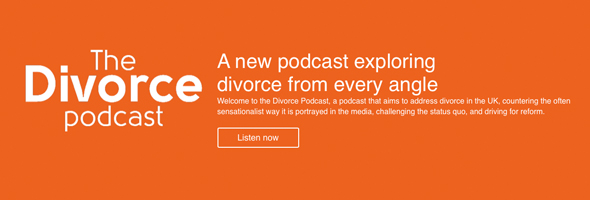Divorce And Mental Health Problems

- This blog contains affiliate links, which we may receive a commission for purchases. The decision is yours, whether or not you decide to buy.
Plenty is written today about the devasting effect of divorce on people’s mental health, and quite rightly so. The breakdown of a long-term relationship is well-known as one of the most stressful things you will go through, second only to the loss of a loved one.
All too frequently as part of the journey depression and anxiety tag along for the ride. But mental illness is not confined to be an after-effect of a divorce.
We frequently advise clients who are wishing to divorce from a partner who is struggling with mental illness, someone struggling to manage their divorce because of their own mental illness or a family breaking down due to a child with mental health issues.
Legal advice on divorce and mental health problems
This article is not written to make a judgement call on whether people should separate due to an illness, be it physical or mental. You cannot walk in someone else’s shoes or truly understand their situation. Instead, it is designed to offer practical, legal advice on the complexities that can arise in a case of divorce and mental health problems.
“Mental health problems can affect anyone,” said Rachel Roberts, Managing Partner at the Stowe Family Law office in Leeds. “I once acted for a high-flying career woman who had been unhappy in her marriage for some time and ended up neglecting her business.
She fell into debt, her business was about to collapse and eventually, her marriage ended. What followed was a severe episode of depression.” “In the beginning, she gave regular instructions and the case continued however as her depression worsened contact became infrequent.
She frequently missed court deadlines leading to adjournments which had to be agreed to be the other party because of her health at the time.” In this situation, the main consideration is whether the party with mental health concerns has the capacity to provide instructions and to agree to a divorce or financial settlement.
Under English and Welsh law, a person’s mental capacity is judged according to the decision that needs to be made. For example, can they understand the relevant information relating to a financial settlement to make an informed decision?”
Assessing mental capacity
If there are doubts over someone’s capacity, a doctor must undertake an assessment to determine whether they can make the specific decisions they face.
“In this case” Rachel explains,” the capacity to give instructions kept changing with the client’s psychiatrist deeming her not to have capacity, and then being fit to give instructions once more and then on a later occasion, deemed unfit again.”
In this situation, if the doctor decides that a party lacks capacity, it is possible to progress the case if a representative, a ‘litigation friend’, is appointed to act on their behalf and make decisions in their best interests. This can be a friend or relative if there is no conflict of interest
If there is no one suitable, the Official Solicitor can be appointed to represent the unwell party but this is not necessarily a straightforward task, and consideration still has to be given to other factors, such as how the case will be funded.
“Thankfully”, Rachel says “her health eventually recovered, and she was able to give instructions.
The case concluded with her full involvement. However, the case had taken much longer than expected, costs had mounted, and the husband sought orders against the wife so that he could recover his costs. This was successfully opposed because clearly, the wife could not be blamed for her mental health.” Struggling with divorce and mental health problems.
Trying to balance a divorce with existing mental health issues, whether it’s you or your spouse who is struggling with the disease, is a complex and emotional time. If you need help, please do get in touch with Rachel or one of our lawyers to look at your options.
This article originally appeared on the Stowe Family Law Blog
You may also like
Books
Buy now from Amazon
- The Power of Positive Energy
- Manifest: The Sunday Times bestseller that will change your life
- Parenting Apart
Podcast
Kate Daly is co-founder of amicable and host of the The Divorce Podcast. Kate created The Divorce Podcast to discuss and demystify divorce, separation and co-parenting in the UK. In each episode, Kate is joined by experts in their field to explore divorce and separation from every angle.
Articles
- Divorce Mediation Explained
- 7 Things You Should Think About Before Filing For Divorce
- Is Online Mediation Right For You?
Videos
Practical advice and tips from professionals on what to do with issues and challenges around divorce from parenting to finance.
Events
Practical tips & advice designed to help people going through divorce, whether online or in person.
Useful links
Here's a selection of organistaioins from parenting to finance to help you with your divorce.
Health professionals
Related Posts
-

Helping Kids Cope When You’re Coping Too: Mental Health Strategies for Divorcing Parents
-

How Divorce Affects Digestion and Mood: The Gut-Brain Connection
-

Gardening Through Divorce: Finding Healing And Growth In The Garden
-

Eating Your Way Through Divorce: A Guide To Nourishing Your Body And Mind With Healthy Foods
-

The Difficult Decision To Divorce A Loved One With Dementia



.jpg)
.jpg)



.jpg)

